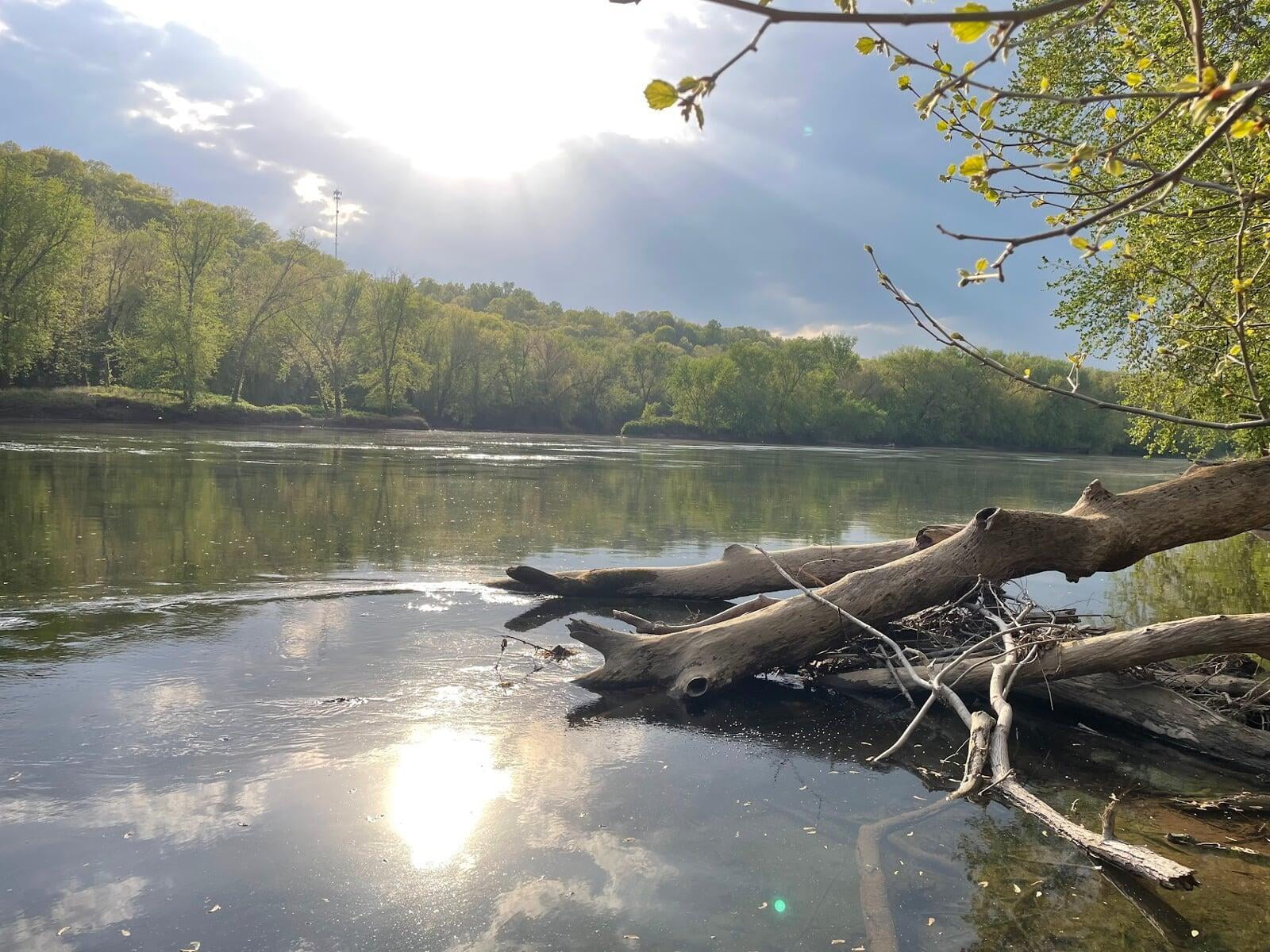
In my previous (and first) blog post, I talked about what it means to “carry the dying of Jesus,” and how this relates to hope in the resurrection. My overall intention with this blog is to write on integral ecology, which is faith-based understanding of our mission to live in harmony with God, neighbor, and the earth. So what does resurrection have to do with ecology?
There is a long history of caring for the earth within the Christian tradition. Pope Francis surveys some of this history in his 2016 encyclical, Laudato Si. Many Christians consider being environmentally conscious as part of our call in Genesis 2:15 to “till and to keep” the earth, and part of being a good neighbor. Pope Francis says: “some committed and prayerful Christians, with the excuse of realism and pragmatism, tend to ridicule expressions of concern for the environment. Others are passive; they choose not to change their habits and thus become inconsistent. So what they all need is an “ecological conversion”, whereby the effects of their encounter with Jesus Christ become evident in their relationship with the world around them. Living our vocation to be protectors of God’s handiwork is essential to a life of virtue; it is not an optional or a secondary aspect of our Christian experience” (LS 217).
But what exactly is it about living an ecological lifestyle that is essential to Christian virtue? I think the key to answering this question is in the ultimate end for ourselves and (I believe) the rest of creation, which is the resurrection. Many people mistake heaven as the ultimate end for us. While it is true that our purpose is to spend eternal life with God, being with God “in heaven” after death is not an eternal destiny. As Catholics, we believe that at the end of time, “heaven” will meet earth, and our bodies will be resurrected and reunited with our souls.
Christians have long been criticized for abusing the earth. Some of this abuse is motivated by a theology that views the earth as a temporary means to our eternal end. In this view, the earth simply exists to sustain our bodies as vehicles for our souls, so that we can live to know God and get to heaven. It doesn’t matter what we do to the earth in the meantime, except maybe insofar as pollution might harm our neighbors. Most major Christian traditions (the Catholic Church included) don’t have a stance on whether there will be non-human life with God in the resurrection. Saint Thomas Aquinas, though he is my favorite theologian, has speculations on this question that I disagree with. He argues that other life forms won’t be a part of the new heavens and the new earth because they exist simply to serve man’s bodily needs, but the stars and the planets will because they “serve man in the sense that by their beauty and enormous size they show forth the excellence of their Creator” (SS 170). Clearly Aquinas did not study the glorious complexity of soil microbial ecology, or many other natural systems which not only suggest evidence of a Creator but are simply beautiful and testify to God’s goodness in and of themselves.
In my opinion, scripture overwhelmingly indicates that a great diversity of God’s creatures, if not every species ever created, will together glorify God at the end of time. The diversity and complexity of organisms that have no direct interaction with or utility for humanity is baffling, and that’s not even to mention the billions of years of evolution filled with the flourishing and extinction of species that preceded the existence of humans on the planet. How could their final ends or purposes all be mediated through human needs? What a wonderful song it would be, if as Revelation foretells: “every creature in heaven and on earth and under the earth and in the sea, and all that is in them” (5:23) are singing blessing, honor, and glory to the Lord forever.
That being said, nature itself is clearly broken, riddled with violence, death, and decay, and our human tendencies towards greed and war are a part of our broken nature. While we have a lot to learn from nature, it does not hold the answers to all of our problems, and according to Saint Paul, it too is groaning in anticipation of the life of the world to come: according to Saint Paul, it too is groaning in anticipation of the life of the world to come:
“creation itself will be set free from its bondage to decay and obtain the glorious liberty of the children of God.We know that the whole creation has been groaning in travail together until now; and not only the creation, but we ourselves, who have the first fruits of the Spirit, groan inwardly as we wait for adoption as sons, the redemption of our bodies” (Romans 8:21-23).
With this view in mind, the logic of, “we live in a broken world and God will take care of it at the end of time” as an excuse for our culture of indifference is ridiculous. To think, “what’s one more plastic wrapper blowing away in the wind?” given that there is a floating island of garbage the size of Texas in the Pacific Ocean is a moral hazard. Is that garbage heap a manifestation of God’s will? Probably not. Who’s going to clean that up at the end of time? Probably God! That logic is the equivalent of giving up on a striving for personal virtue because God can (and already has) cleansed us of sin through Jesus. Sure, we all fall short and make up excuses for ourselves at times, but we don’t embrace these excuses as a healthy part of Christian theology. In the same way that God has already freed us from the slavery of sin so that we can more fully love God and our neighbors, God has already given us the wisdom and gifts to live in more beautiful harmony with the rest of creation. Practicing this harmony in whatever incomplete and fumbling ways that we can in our daily lives is an essential part of Christian virtue.
This idea also applies to issues regarding reverence for human life, caring for the poor and vulnerable in society that some would call hopeless causes. When my husband and I got a fatal ultrasound diagnosis for our daughter, for reasons that took me a long time to understand, I didn’t really find it comforting to hear that I would have a baby in heaven. Catholics believe that life begins at conception, so her soul was already created, and would be in heaven whether she died in the early weeks of pregnancy or whether she made it full term. What meaning is there in watching her body grow and develop, only for it to perish hours after birth? Would it be better to have a miscarriage and not prolong the process of grieving her loss? I didn’t have a deep sense of purpose about the pregnancy until I realized the hope of the resurrection, that her body (and mine) with all of our wounds and imperfections will be transfigured at the end of time. By carrying to term, I carried her just a little closer to her eternal destiny of worshipping God with her resurrected and glorified body. The body is not merely a vehicle for the soul, but it is an integral part of what makes us human, and how we will experience eternal life with God.
Likewise, the earth is the very thing on which human flourishing (both spiritual and material) depends. To the extent that care for God’s creation in this life, we are bringing the Kingdom of God (albeit in small and incomplete ways) to earth, and to the extent that we harm it, we are dishonoring God’s creative work, and inflicting wounds on the earth that God will need to heal, as well as distortions in our own hearts that will need to be reconciled. I try to envsion this when we pray the Our Father: “Thy Kingdom come, thy will be done on earth as it is in heaven.”

